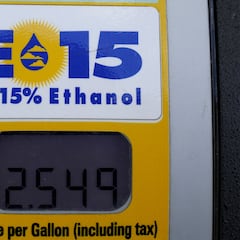Tax Deadline 2022: when is the last day to file the documentation?
The IRS began accepting 2021 tax returns in January and the deadline for taxpayers to submit their filings or get an extension is fast approaching.

The 2022 tax season is wrapping up with the Monday 18 April deadline just days away. Most filers will need to submit their 2021 tax returns or request an extension, which would give them six more months to get their fiscal declaration in order.
Similarly, the deadlines in most states that tax income fall on 18 April. The filing date is slightly later than normal due to the Emancipation Day holiday in the District of Columbia falling on the typically 15 April deadline.
There won’t be any extension like the past two years, except for some taxpayers in areas that were affected by natural disasters. Those that do ask for extra time will still need to pay any outstanding taxes they may owe to avoid additional penalties.
Also see:
Tax deadlines for state income taxes
The District of Columbia and 41 states require residents to submit an income tax declaration. If you live in one of the nine states that don’t collect income tax you can focus on getting your federal return done to take advantage of enhanced tax credits for the 2021 fiscal year. Taxpayers will have to file to get the remainder of the 2021 Child Tax Credit but there are more credits that parents can claim. The Earned Income Tax Credit (EITC) was also expanded to include more Americans younger and older and significantly increased for those who don’t have children or dependents.
Related news: Earn up to $10,000 to work in these US states?
States with later 2021 income tax filing deadlines
| 19 April: | Maine & Massachusetts |
| 30 April: | Iowa |
| 2 May: | Delaware & Virginia |
| 15 May: | Louisiana |
States that don’t have income tax include Alaska, Florida, Nevada, New Hampshire, South Dakota, Tennessee, Texas, Washington and Wyoming.
Some states issue tax return deadline extension for disaster victims
While the IRS has repeatedly stated that there will be no tax return extension on a federal level, the agency has announced a limited number of deadline postponements for states and counties who have suffered a severe natural disaster.
If you were a victim of severe storms, straight-line winds, and tornadoes in parts of Tennessee, you may have until May 16, 2022 to file various individual and business tax returns and make tax payments. See details of #IRS relief at https://t.co/dYvRT5ifJF pic.twitter.com/zjjnNqAw23
— IRSnews (@IRSnews) April 12, 2022
Kentucky has been hit by a succession of tornadoes causing substantial damage and affected the infrastructure in areas. The IRS has announced that residents and businesses in the following counties will have until 16 May to submit their returns: Barren, Breckinridge, Bullitt, Caldwell, Christian, Fulton, Graves, Grayson, Hart, Hickman, Hopkins, Logan, Lyon, Marion, Marshall, Meade, Muhlenberg, Ohio, Shelby, Spencer, Taylor, Todd, and Warren.
Likewise, victims of wildfires in Colorado and storms in Tennessee will also have until 16 May to complete their filing.
IRS requests help from filers to speed up the returns process
With a variety of pandemic-era relief programmes to be accounted for and the IRS unable to work at full capacity for some of the past year due to covid-19 restrictions, there is a danger of longer than usual waits for tax returns to be processed. Filers are advised to submit their returns as promptly as possible.
Related stories
“Planning for the nation’s filing season process is a massive undertaking, and IRS teams have been working non-stop these past several months to prepare,” IRS Commissioner Chuck Rettig wrote in a statement. “Filing electronically with direct deposit and avoiding a paper tax return is more important than ever this year. And we urge extra attention to those who received an Economic Impact Payment or an advance Child Tax Credit last year.”
The distribution of the Economic Impact Payment (also known as stimulus checks) and the advance Child Tax Credit in 2021 gave the agency a huge additional workload to contend with and millions of people are expected to claim missing payments on the tax return this year.

